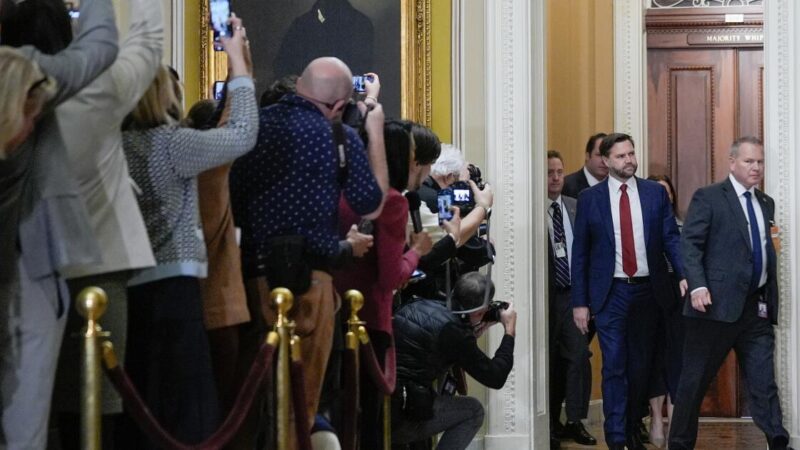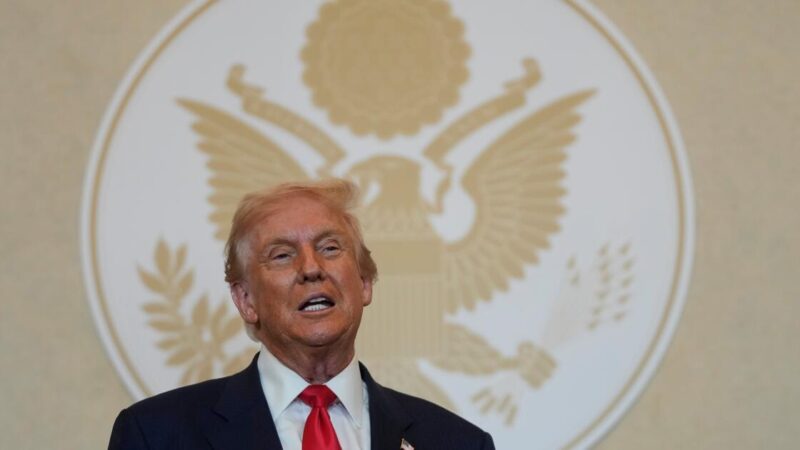Column: Donald Trump isn’t a dictator, but his goal may actually be worse
Julius Caesar still casts a long shadow. We have a 12-month calendar — and leap year — thanks to Julius. July is named after him (though the salad isn’t). The words “czar” and “kaiser,” now mostly out of use, simply meant “Caesar.”
We also can thank Caesar for the durability of the term “dictator.” He wasn’t the first Roman dictator, just the most infamous one. In the Roman Republic, the title and authority of “dictator” was occasionally granted by the Senate to an individual to deal with a big problem or emergency. Usually, the term would last no more than six months — shorter if the crisis was dealt with — because the Romans detested anything that smacked of monarchy.
When Caesar crossed the Rubicon (where we get that phrase), his enemies in the Senate fled. So, the remaining senators named him dictator for 11 days to hold fresh elections. His second dictatorship was set for 10 years, and then finally he was named dictator for life.
In the centuries that followed Caesarism, not dictatorship, was the real dirty word, at least for lovers of liberty.
Even in America, dictator still had some of that “emergency problem-solver” connotation. During the Great Depression, many Americans craved just such a man. Legendary liberal columnist Walter Lippmann wrote at the dawn of the Great Depression, “A mild species of dictatorship will help us over the roughest spots in the road ahead.”
On Franklin D. Roosevelt’s Inauguration Day 1933, the New York Herald-Tribune ran an approving headline: “For Dictatorship If Necessary.” Many aides and Cabinet secretaries were dubbed “dictators” in much the same way we sometimes call officials “czars” — as in drug czars, border czars, even “green jobs czar,” etc.
Later it was Hitler and Stalin who erased most of the “Mr. Fix-it” connotation of “dictator.”
But the real cautionary tale was there from the beginning. Dictatorship — the granting of unchecked powers during a temporary emergency — is what makes Caesarism possible. By giving one person the “arbitrary power” to declare war, levy taxes or hand out favors to sustain his popularity with the plebes, the temptation to become a Caesar is too great.
Some — like Cincinnatus, George Washington or Abraham Lincoln — can resist, but all you need is one lesser mortal to be granted undue power for the whole experiment in republican government to come crashing down. This was the history of republics until 1789, which is why Benjamin Franklin commented after the constitutional convention, that the drafters had given us “a republic, if we can keep it.”
The founders were steeped in Roman history. The Constitution is designed to prevent such temptation. But the founders also understood that sometimes a president should have extraordinary powers during an emergency. After all, the institution of a dictator had helped preserve the republic for centuries until Caesar’s Caesarism made it an empire.
In short, emergency powers are necessary only during actual emergencies. There’s a long history of American presidents declaring emergencies not to solve a crisis but to gain the power crises confer. Joe Biden tried to use the COVID-19 pandemic to cancel $430 billion in student loans he had no authority to cancel.
President Trump has declared a trade imbalance a national emergency. He claims the International Emergency Economic Powers Act, or IEEPA, of 1977 — a law that doesn’t mention the word “tariff” — grants him total, unchecked power to levy tariffs to deal with that emergency. He’s used that alleged authority to punish Brazil — with which we have a trade surplus — because the current government is prosecuting an ally who also tried to steal an election.
And just last week, Trump announced that a pro-free trade ad bought by the government of Canada’s Ontario province using the words of President Reagan — is justification for raising tariffs on all of Canada by another 10%. Not counting oil, we have a trade surplus with Canada too. We buy so much oil from Canada because they sell it to us at a below-market rate.
These are not emergencies. Nor are trade deficits, generally. Is it an emergency that you have a trade deficit with your local grocery store?
Trump’s lawyers have argued that denying the president this permanent and unlimited power would be disastrous, which itself is a Caesarist argument: I must have unchecked power to keep you safe.
IEEPA requires Congress to review the president’s actions every six months. But Congressional Republicans have changed the rules to deny themselves the ability to check the authority Trump is abusing.
Trump is not a dictator, but as Benjamin Franklin understood, republics fail not so much because would-be Caesars seize power. They fail because cowards give it to them — under the false pretense of an emergency.





